I’m a little behind this week since my younger brother passed away on Sunday. He had suffered from cardiovascular disease for quite some time and other complications. But 65 is still too young. His wife and kids will certainly feel his loss as do all of us who knew him.
I started working on this story a week ago. I read a lot of sources to support my hobby of writing about the Second World War. One that I really enjoy is a repository for historic newspapers in the Pacific region. Those include Australia, Singapore, and the Philippines. You can look up specific dates and if you have some knowledge of an event, you can even pull out articles about specific topics.
I have a companion page on Facebook where I post short stories and some pictures. But every once in a while a story will catch my eye and I feel the urge to dig deeper.
By January of 1943, the Japanese Army had been in the Philippines as occupiers for a year. The invasion had begun on December 8, 1941 just ten hours after the attack on Pearl Harbor. The Americans had anticipated the attack but not soon enough. The strengthening of the American and Philippine army was never fully completed and the invaders were well trained and well equipped. The plan was to eliminate American air power and the Japanese caught too many of the planes on the ground. Even if they had not been destroyed, the superiority of the Japanese air fleet at that point (along with a well-developed navy) sealed the fate of the defenders. They just didn’t have the right tools or at least enough of them.
After the fall of Corregidor, the occupation began in earnest. Roughly 23,000 American soldiers and 100,000 Filipino soldiers were killed or captured and the atrocities are well documented from the survivors.
But conquering a country and keeping it are quite different matters. Many of the soldiers from both sides melted into the mountains and jungles. The Philippine country is a series of many islands that required constant watching. And the Japanese had been engaged in many other places by January of 1943. Guadalcanal was a meat grinder for troops on both sides and the Japanese had a finite supply once the war was taken back to them.
One of the pretenses that Japan tried to make a reality was something called a Greater Far East Co-prosperity Sphere. This public relations move was to show the people of the Far East that they would live happier and more prosperous lives under Japanese “guidance”.
In the Philippines, part of that strategy was to use existing local newspapers and radio to try and convince the people of their peaceful intentions. They also used their propaganda to try and suppress a growing rebellion that would eventually rise up and meet the returning Americans. This tied up countless troops and caused a great deal of concern for the high command. The following is an example of the type of articles that were prevalent in the year 1943.
Sunday January 24, 1943, the Tribune (Philippines)
Peace Must Be Restored, Says M. P. Chief
Offenders to Be Enlightened— Equal Treatment to All
It would be impossible for Filipinos to be completely happy without first securing peace and order, Col. A. Nagahama, Chief of the Japanese Military Police in the Philippines, declared at his first interview with the press yesterday.
To clarify his true intentions in the pursuit of his calling, Col. Nagahama issued a statement of policy yesterday on the occasion of the first anniversary of the organization of the Philippine Executive Commission.
His statement follows in full:
1. Absolute Peace Should First Be Established.
Without first establishing peace and order, it is impossible to bring about real happiness to the Filipino people. At present, the task of maintaining peace and order and restoring normalcy in the daily life of the people is made harder by gangsters in Manila and outlaws in the provinces. The latter include former USAFFE soldiers who have degenerated into brigands and bandits, who pin blind faith in the return of America to the Philippines.
These outlaws and gangsters harass the peaceful and law abiding citizens. They kill, loot, burn, pillage — and victimize the masses. They are the worst public enemies, for they even pose as patriots when in truth they are traitors. As chief of the Japanese Military Police, I am endeavoring to totally exterminate them as a necessary step toward the complete restoration of peace and order, and normalcy.
2. Racial Discrimination Shall Be Discouraged.
We are well acquainted with the Filipinos’ good qualities and love for peace. The Japanese are not conquerors. And the Filipinos are not a conquered people. These two peoples are friends, nay, brothers: there should be no racial discrimination between them. As a matter of general principle, the Japanese Military Police do not discriminate because of racial differences. In the performance of their duties, the Japanese Military Police treat all people equally, regardless of nationality, Japanese and other nationals alike.
3. More Emphasis on Enlightenment Rather than on Punishment.
Most of those who have committed offenses calling for punitive action were those who blindly believed in American propaganda or who misjudged facts because they were not in a position to learn the truth. If these elements had been informed of the real facts regarding the world situation, and given proper and timely guidance, there would have been less of their number now. They should not have committed offenses had they, in the first place, had the opportunity to know the facts. In problems such as these, the solution lies not in punishment, but rather in enlightenment. Punishment, is the last thing I resort to, in dealing with Filipino offenders. There is no necessity to prove this, for it is well-known that only those who refuse to “see the light” have been punished by the Japanese Military Police. I am only too anxious to help the Filipinos grasp the meaning of the New Order. I am willing to go to the extent of making sacrifices to succeed in this task. Needless to say, since more emphasis is laid on enlightenment and teaching, rather than punishment, cruel treatment and torture are unnecessary.
4. For Willingness to Cooperate with Japan, Offenders May Be Forgiven for Their Crimes.
One-sided propaganda during the American regime and circumstances then prevailing are the root causes of the offenses committed by misguided Filipinos today. The masses did not know the truth about international affairs because of American unfairness in the dissemination of news. Indeed, the Filipinos were forced into a pitiable position which aroused the sympathy of the Japanese people.
Under such circumstances, I believe that the offenses they committed were not grievous, as they were mainly the result of ignorance. Now, that the truth may be known, the Filipinos’ worth may be measured by their willingness to cooperate with Japan in the establishment of the New Order in East Asia. We may forgive past offenses for offenders’ willingness to collaborate. I am convinced that a bright future is in store for the Philippines, if the Filipinos willingly forget the unwholesome influences of America and work wholeheartedly with Japan. Meanwhile, I will let those who are not willing now to cooperate with Japan to reconsider their stand and have a new start.
5. Active Cooperation by the Masses is Necessary.
The Imperial Japanese Forces are exerting all efforts and making sacrifices to restore order and to bring back to the Filipino homes their traditional peace and tranquility. The time will come when the Filipino people themselves will be able to take up the work of restoring and maintaining peace without the help of the Japanese forces. Real peace cannot be forced on the people. It will come to them only with their help and willingness to keep it. If the masses seek real peace, they should help actively in its restoration, and maintenance, and thus contribute their share in the establishment of a New Philippines.
6. The Japanese Military Police Will Collaborate with the Constabulary.
The Filipinos’ contribution to the cause of peace and order is exemplified by the good record of the local police, who work day and night in the performance of their duties. Filipino policemen, as I have observed, are imbued with a high sense of justice and of public Service, brave and efficient. I say for the welfare of the people that I will go hand in hand with my co-workers, the Filipino policemen, who are making their way toward the noble and glorious goal common to us all.
7. Inconveniences to the Public will be Minimized as Much as Possible.
Because of the war situation, it is Inevitable that the public is sometimes subjected to little inconveniences, especially by the Military Police. This is true in Manila as it is everywhere else in the world. For in the maintenance of peace and order the police officers have to adhere strictly to Martial Law. In the case of the Japanese Military Police in the Philippines we have made it a fundamental policy to minimize these inconveniences. This we have been doing by exercising at all times the strictest impartiality.
In the name of the Japanese Military Police of the Philippines and in mine I wish to thank all citizens of the Philippines for collaborating whole-heartedly with us in maintaining peace and order.
***
It is said that the Battle of the Philippines was the greatest defeat the Americans had ever suffered. But the story of the resistance is one of the most successful stories of human strength in the face of overwhelming odds.
Col. Nagahama would later be tried and hung for war crimes committed under his watch.
In 1986, John Sharkey of the Washington Post wrote a fascinating story about some of the worst propagandists of the war. One of the worst was the father of former Philippine President Ferdinand Marcos. But that is a story for another day.
I do wonder as I read about historical propaganda how easy it is for political powers to use it to craft their own narratives. And how many people believe them.
Mister Mac
Edit: I just saw this article this morning about the Philippines:

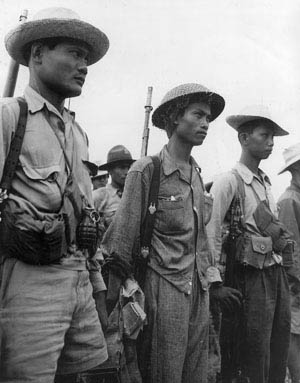
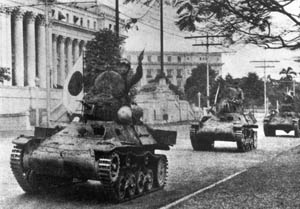
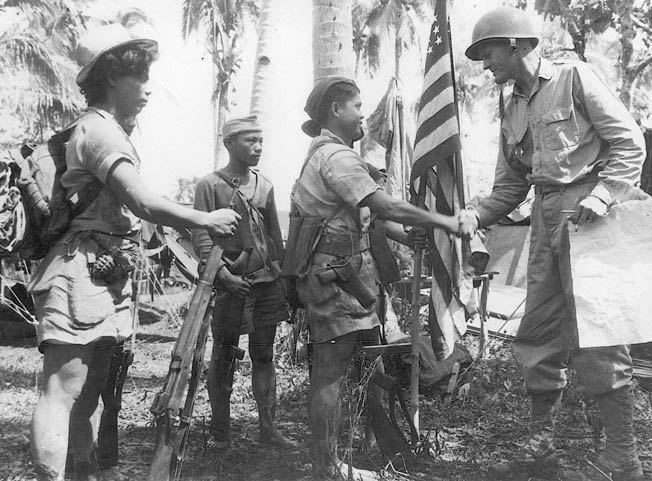
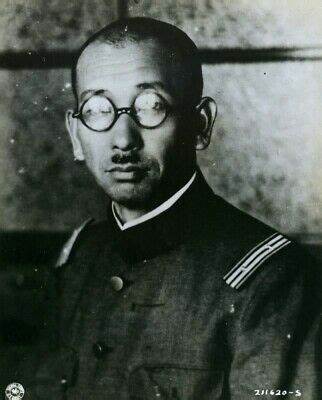
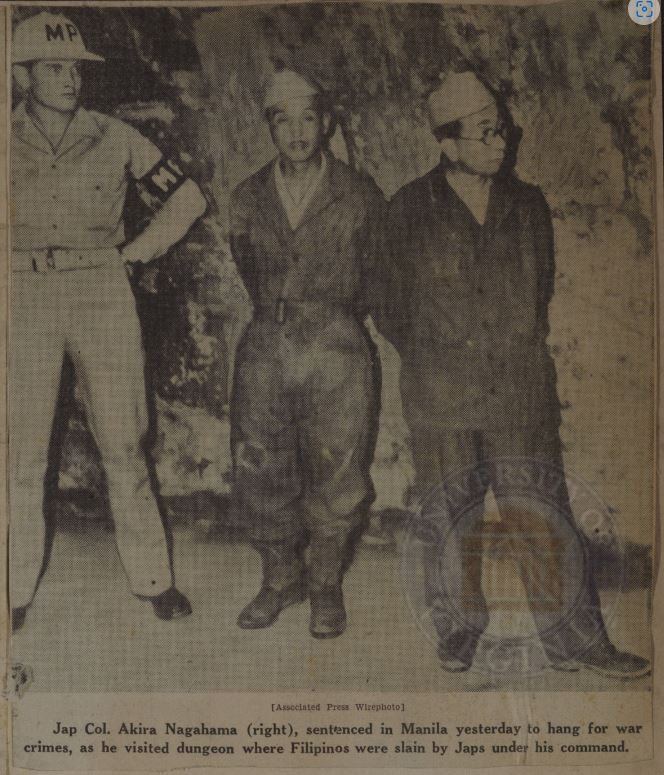
I am sincerely sorry for your loss.
Thanks my friend.
Mr. Mac I am sorry your brother died. I also feel 65 is too young.
Ken